There are several factors that require careful monitoring of the coverage of election campaigns on Belarusian YouTube channels.
Firstly, through the single election day on February 25, 2024, the current Belarusian regime will try to once again confirm its control over the country and the placement of loyal people in elected positions. Secondly, state-controlled media spread disinformation about election campaigns in neighboring countries through their YouTube channels, as was the case with Poland and Slovakia. This is how information about possible elections in Ukraine is commented on. Considering that the European Parliament elections will take place in May 2024 and this campaign will affect three countries neighboring Belarus, it can be assumed that the absolute number of disinformation publications will increase. Attempts to more deeply influence the voters of these countries can also be expected. That is, there will be both internal and external disinformation campaigns.
Thirdly, the Russian factor breaks down into the presidential campaign in the Russian Federation itself, as well as the dissemination of disinformation manufactured by Russian propagandists, both technologically and ideologically (“manuals”), and simply by financing media outlets ready to work with prepared materials.
May 2023
Data on 16 publications in May of this year were collected. The words ELECTIONS were used in the titles of these publications. YouTube channels affiliated with Belarus were selected as the filter.
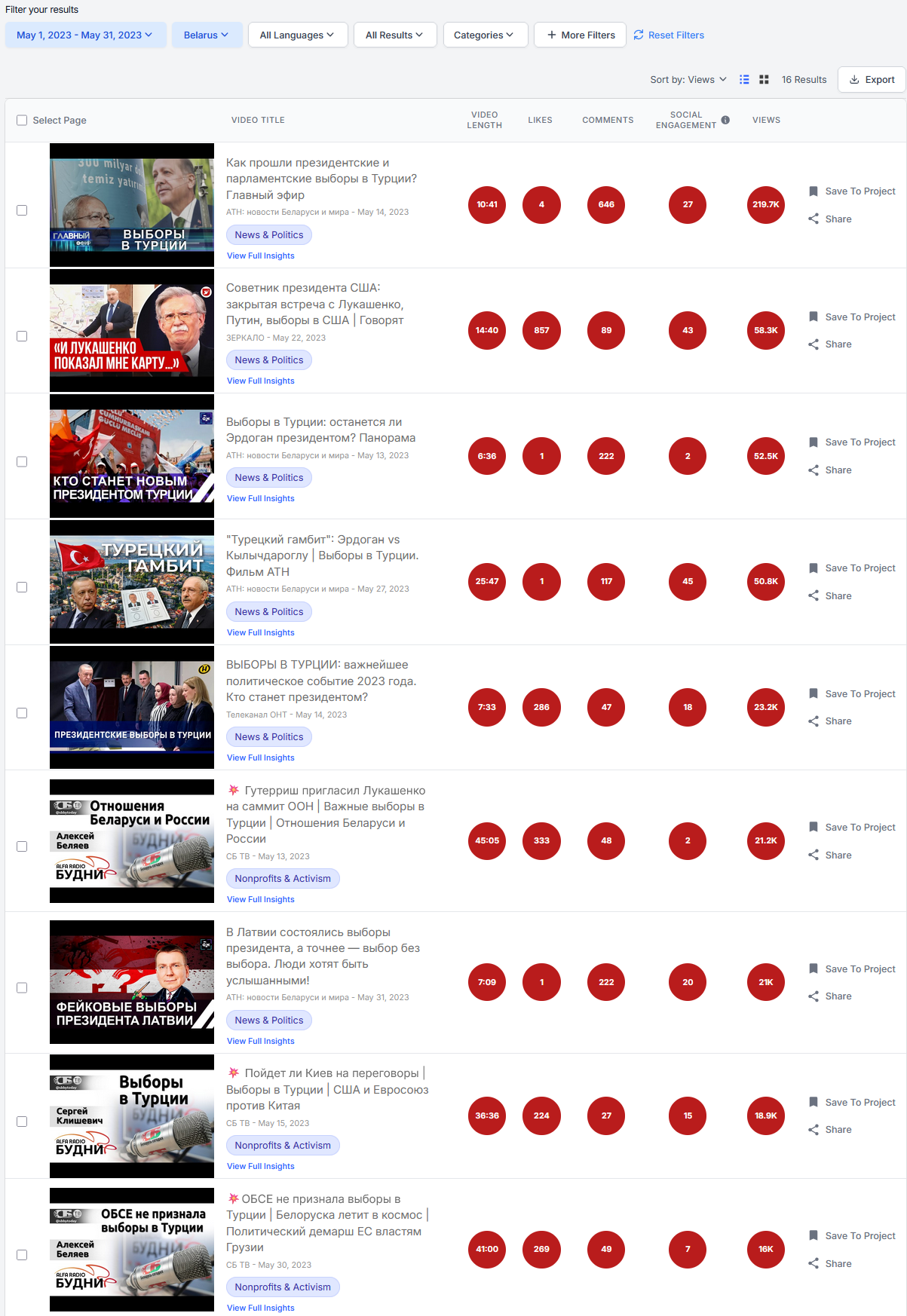
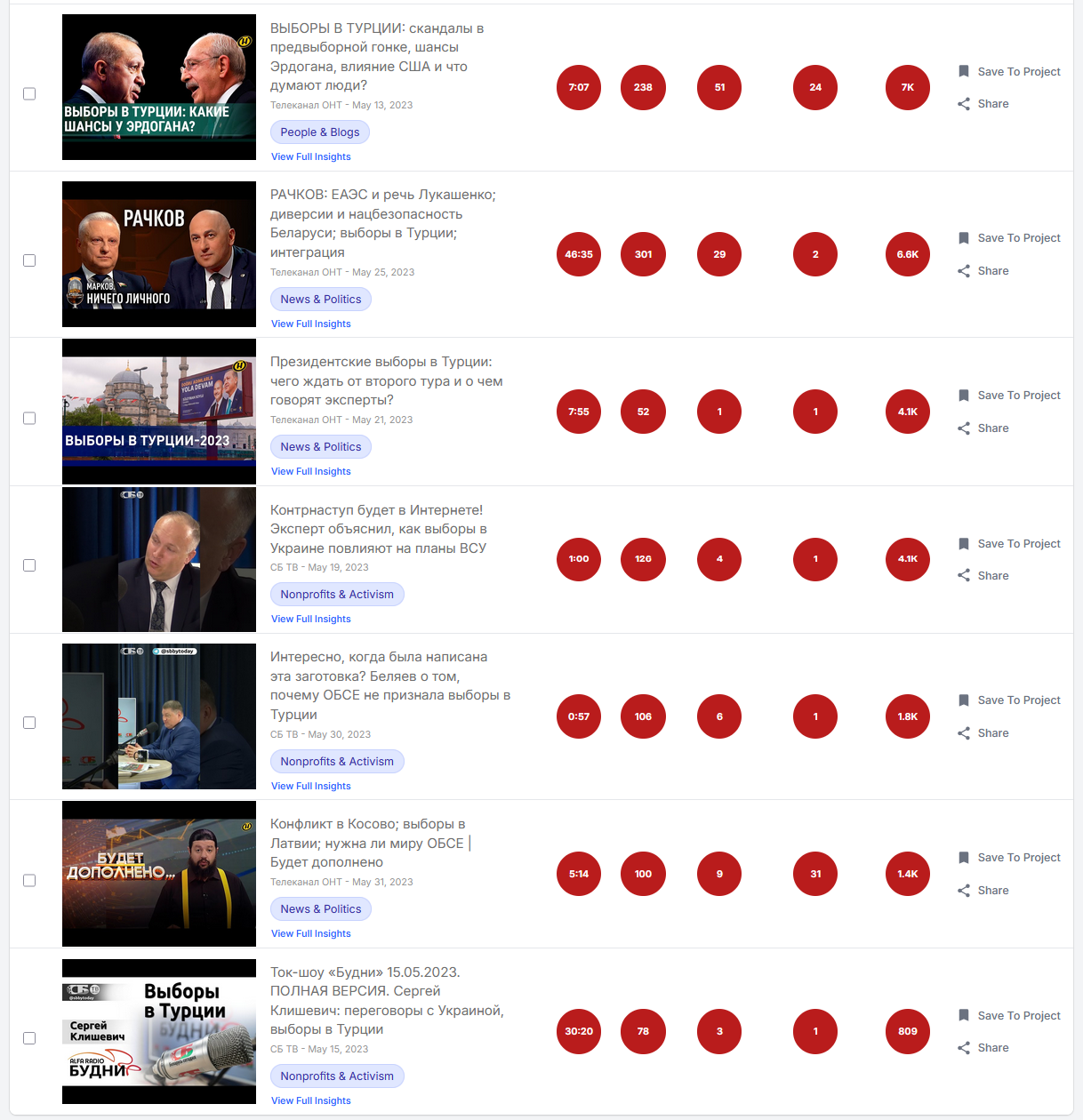
Twelve publications were dedicated to the elections in Turkey. Two publications with false information about the presidential elections in Latvia and one each about elections in the USA and Ukraine. Only one publication was made by independent media.
June 2023
Six publications were collected in June:
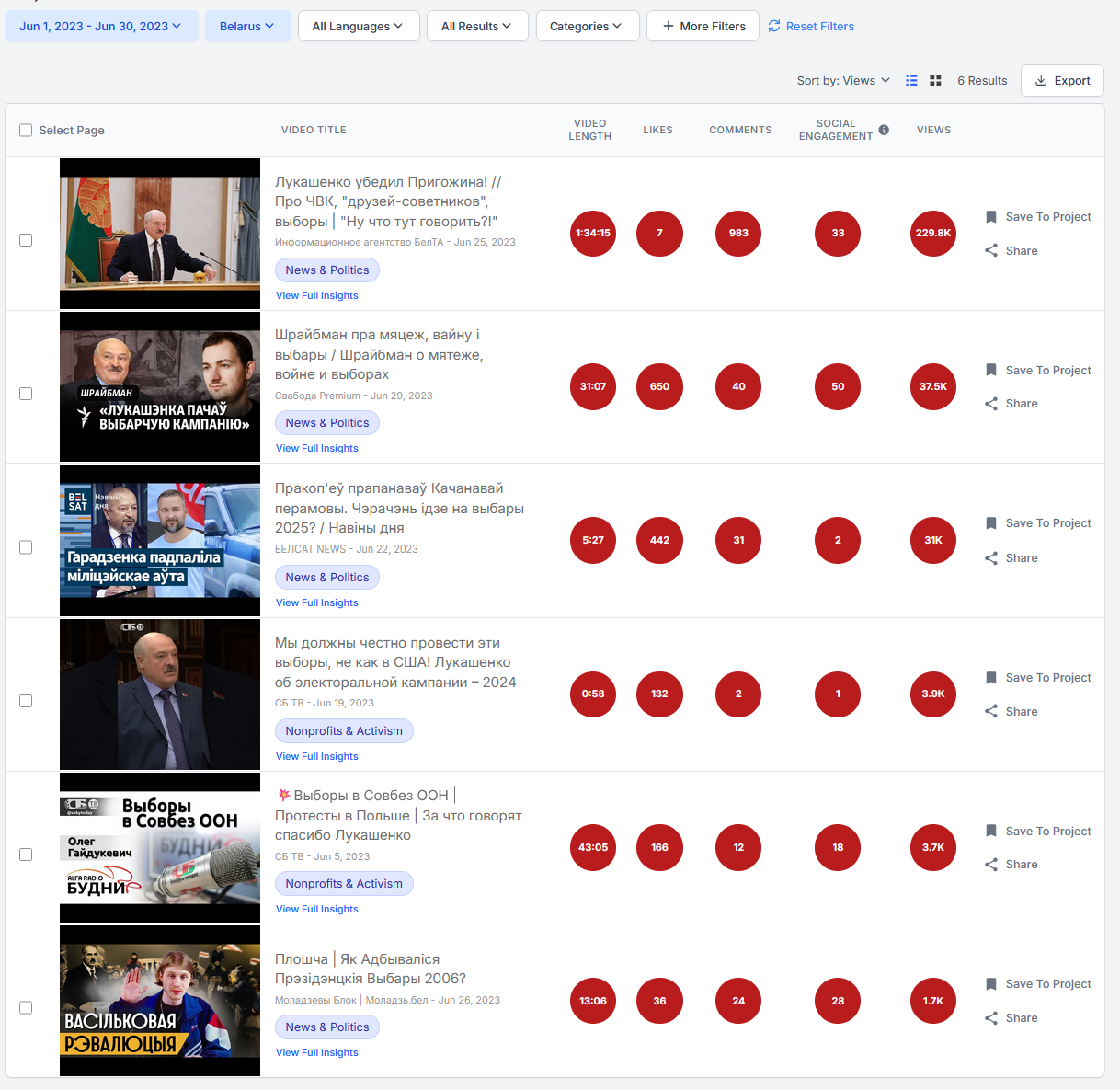
Videos on the topic of the Belarusian election campaign of 2024 are already appearing. It is worth noting how few views a short video on the SB TV channel with Lukashenko got, showing that using this politician for visualization does not automatically bring the expected numerous views.
July 2023
The analysis includes only five videos:
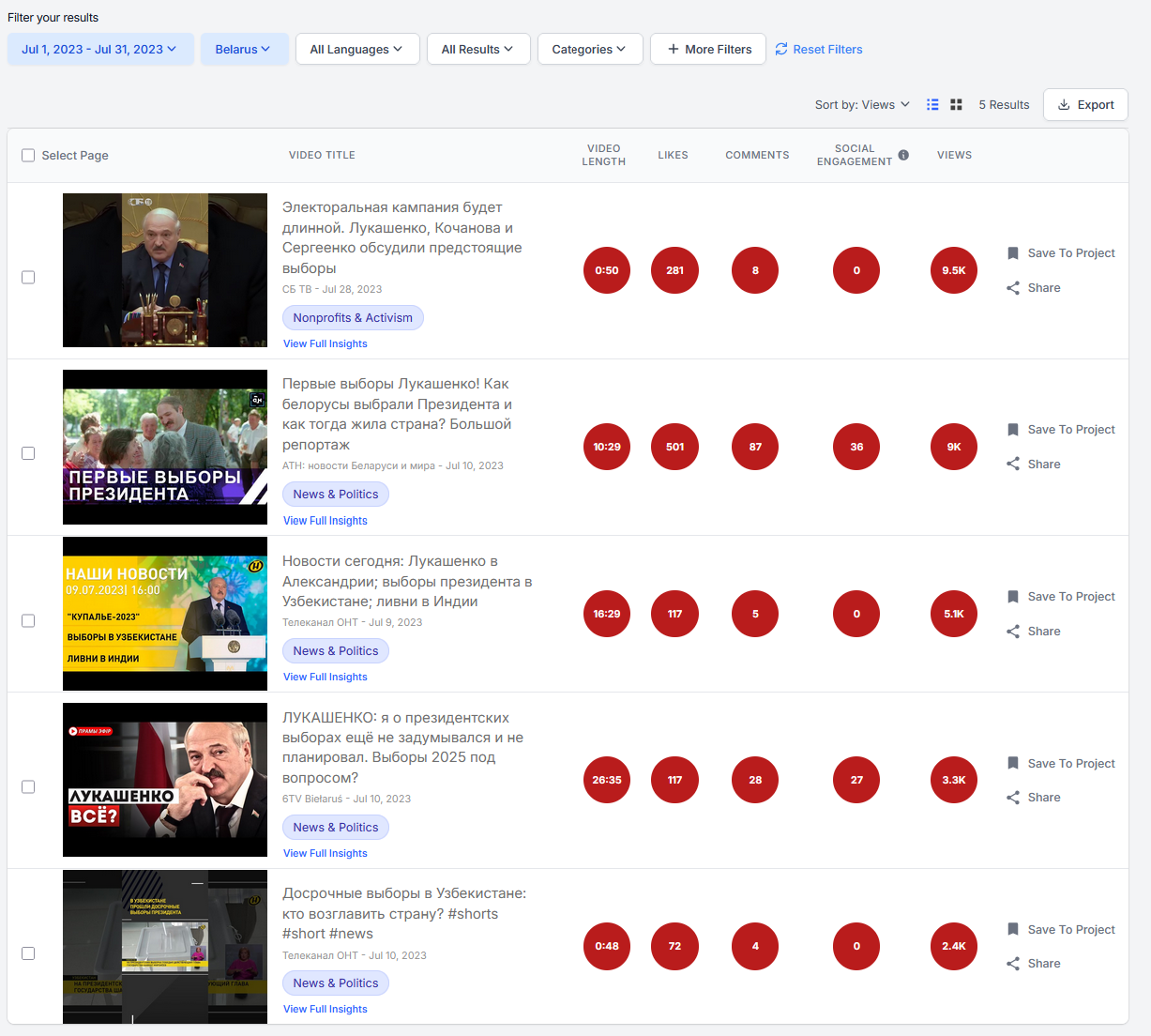
Two stories about elections in Uzbekistan. Again, we see a small number of views for two pro-government stories with catchy headlines: “The electoral campaign will be long. Lukashenko, Kochanova, and Sergeenko discussed the upcoming elections”.
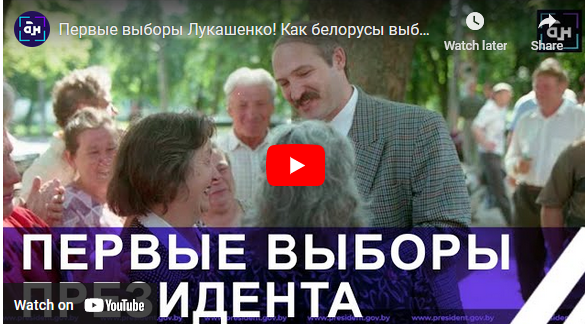
Or:
“Lukashenko’s first elections! How Belarusians chose the President and how the country lived then? Big report”
Less than 9,000 views on a channel with 1.1 million subscribers!
August 2023
A total of 17 posts were collected compared to previous months!
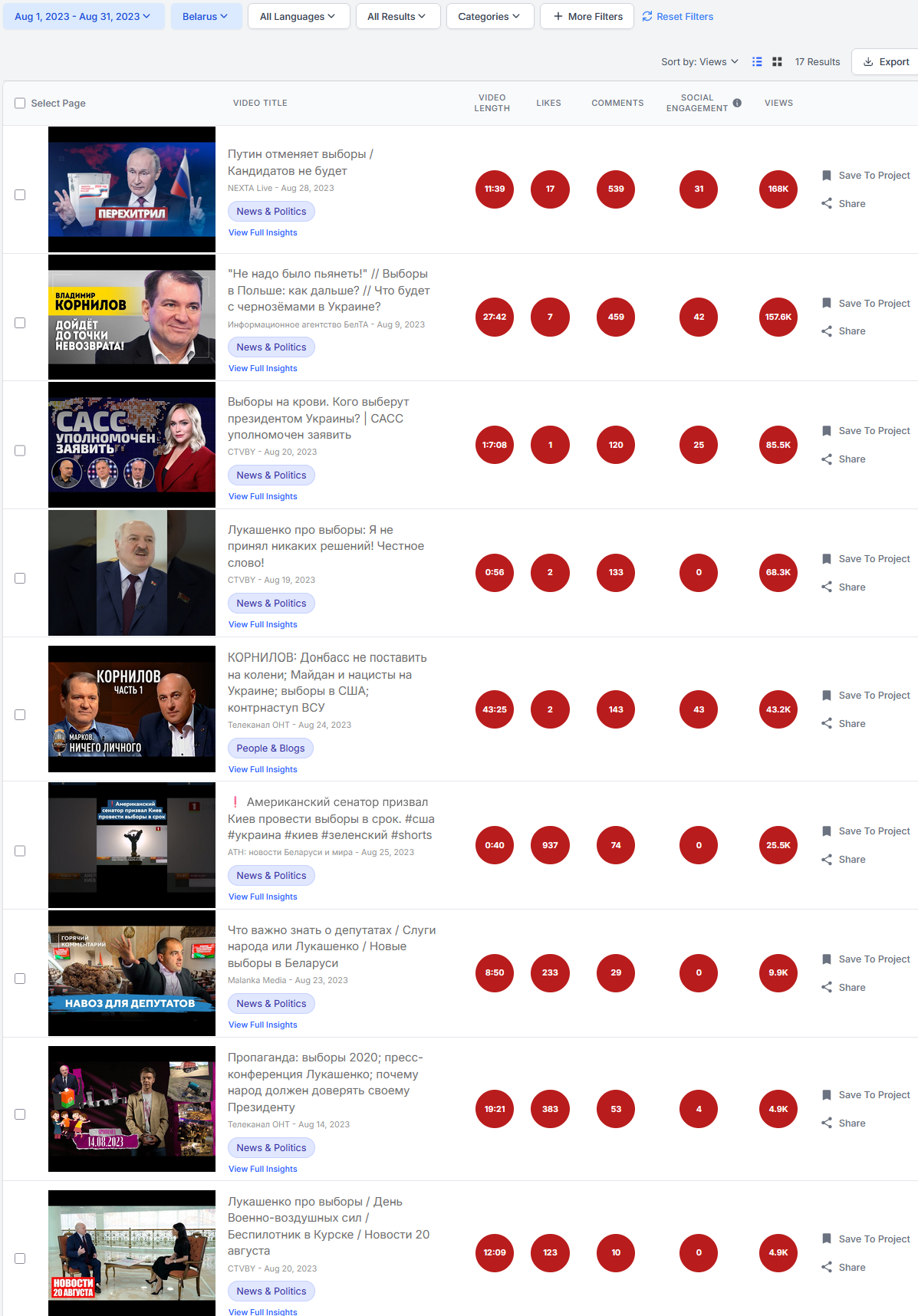
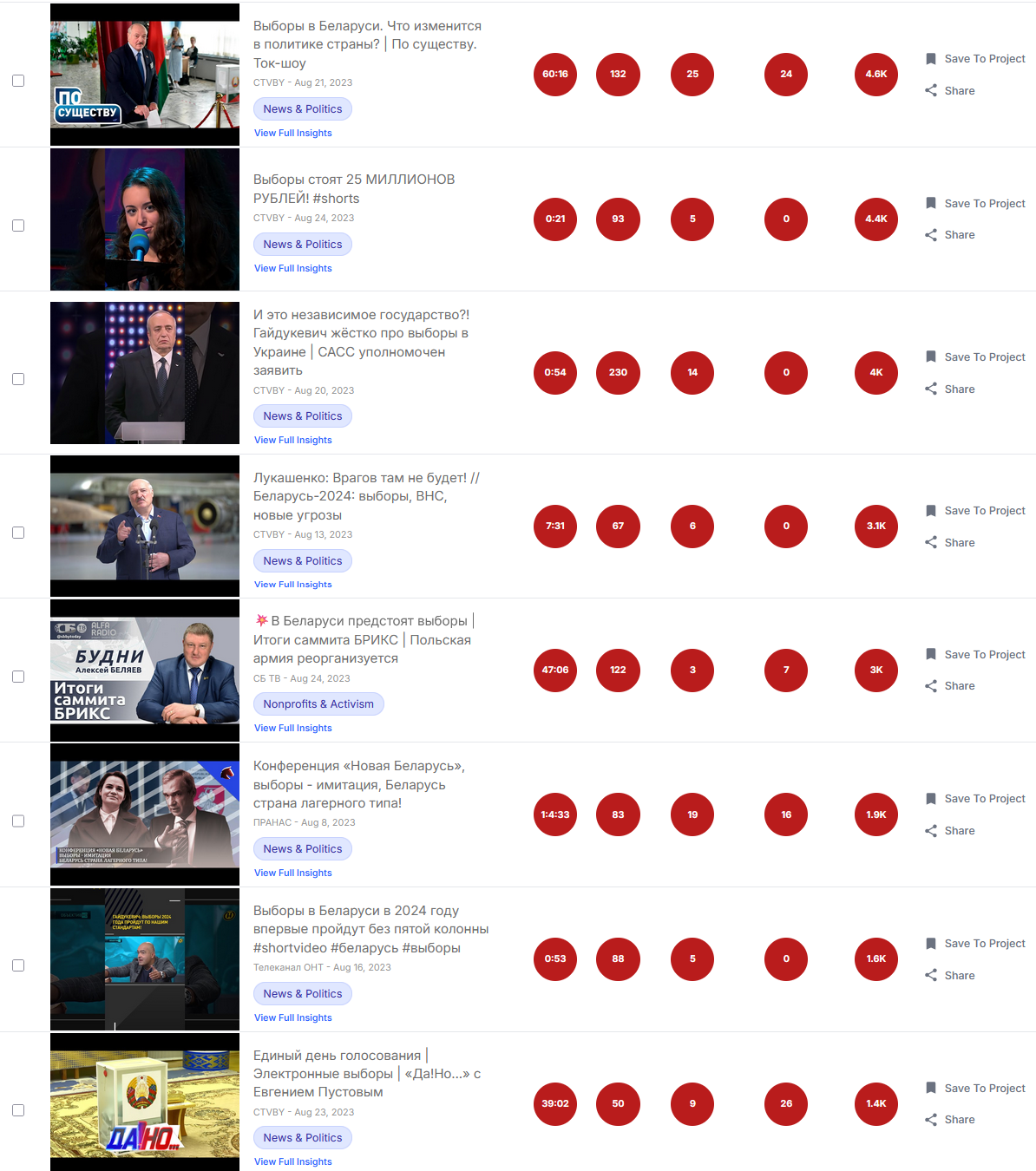
Five stories – one about parliamentary elections in Poland, three about elections in Ukraine, and one about presidential elections in the USA, prepared on state-controlled TV channels, contained elements of disinformation.
September 2023
The main topic of the September publications was the parliamentary elections in Poland:
img class=”alignnone wp-image-22371″ src=”https://infopolicy.net/wp-content/uploads/2023/11/BY_youtube_september2023_1.png” alt=”” width=”432″ />
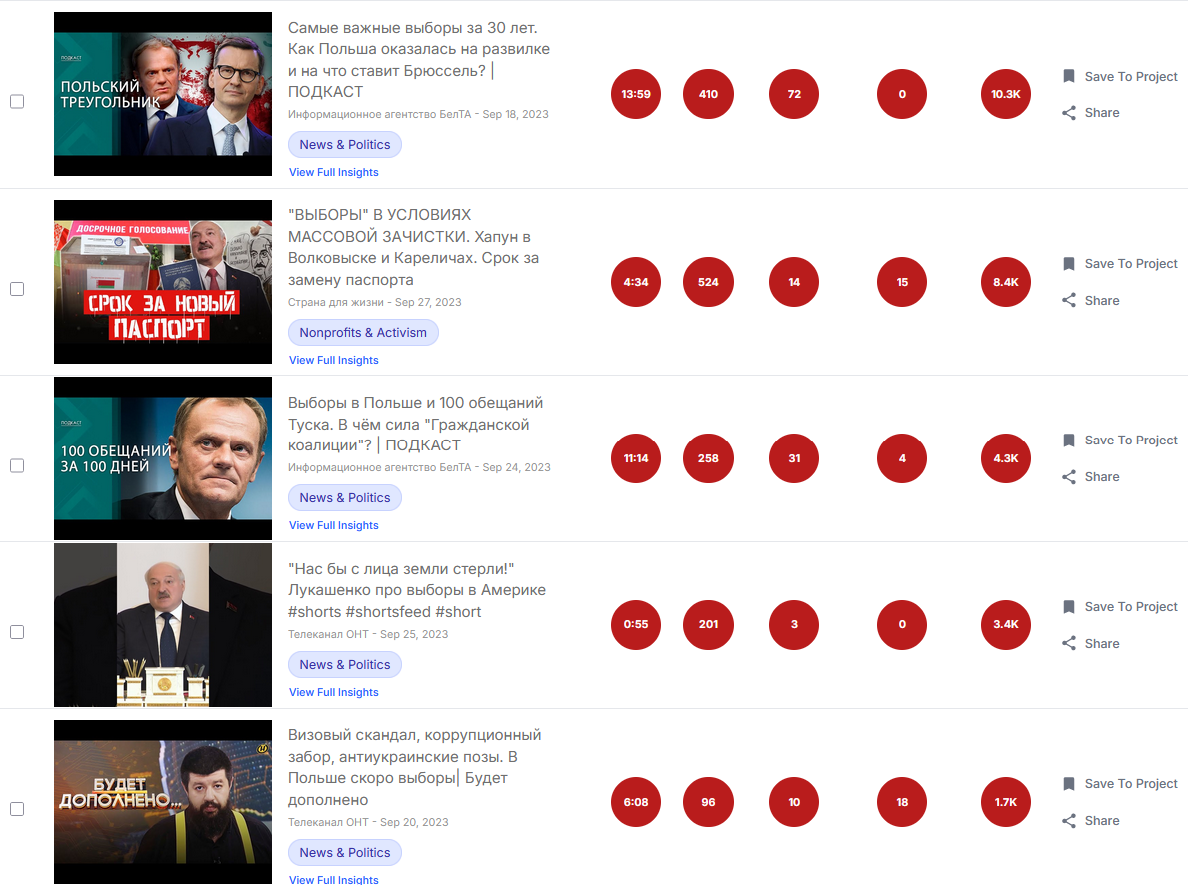
There are more publications about Belarusian elections from independent media. State media publications about elections in Poland contain disinformation and use unfriendly narratives towards the neighboring country.
October 2023
Twenty-nine publications:
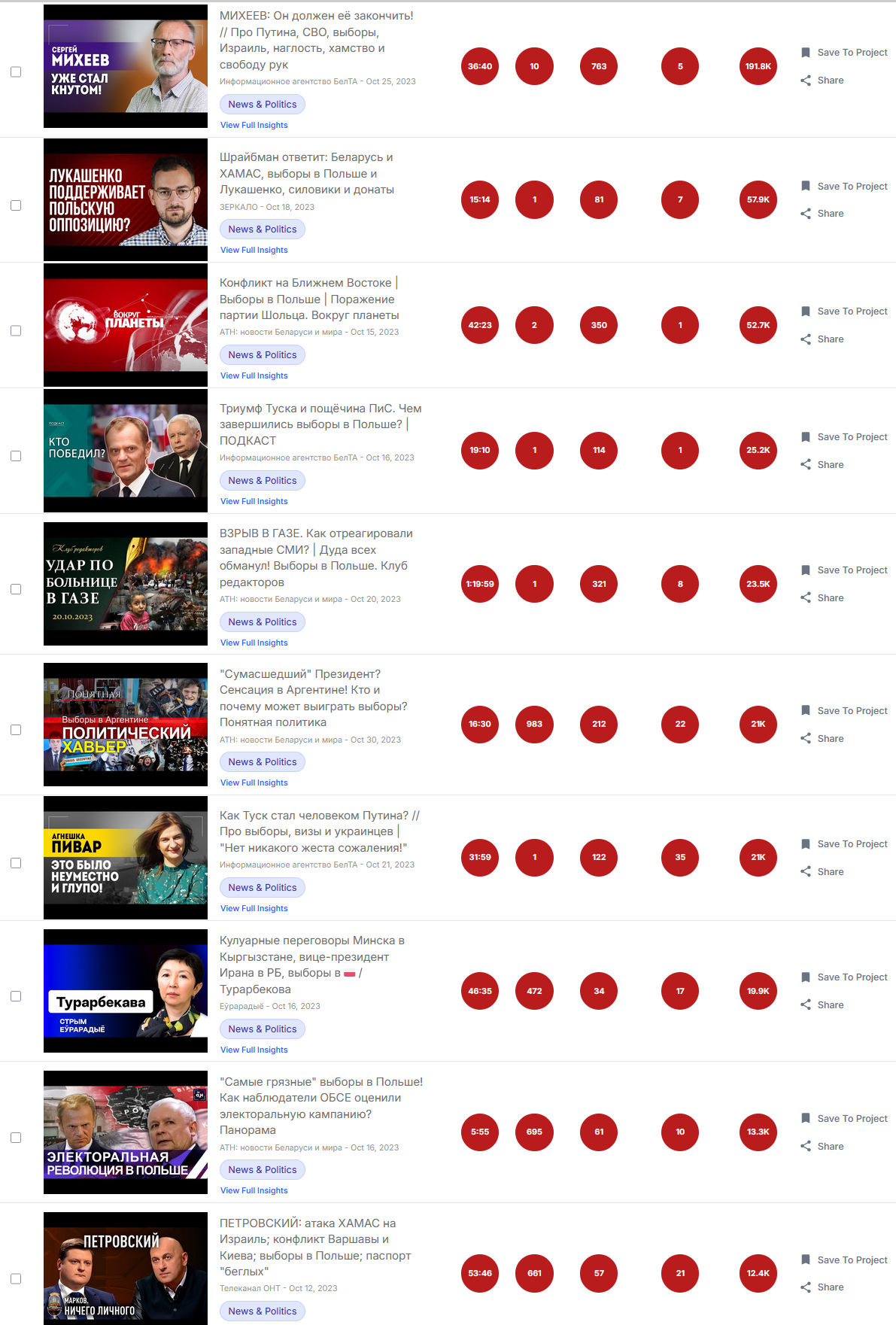
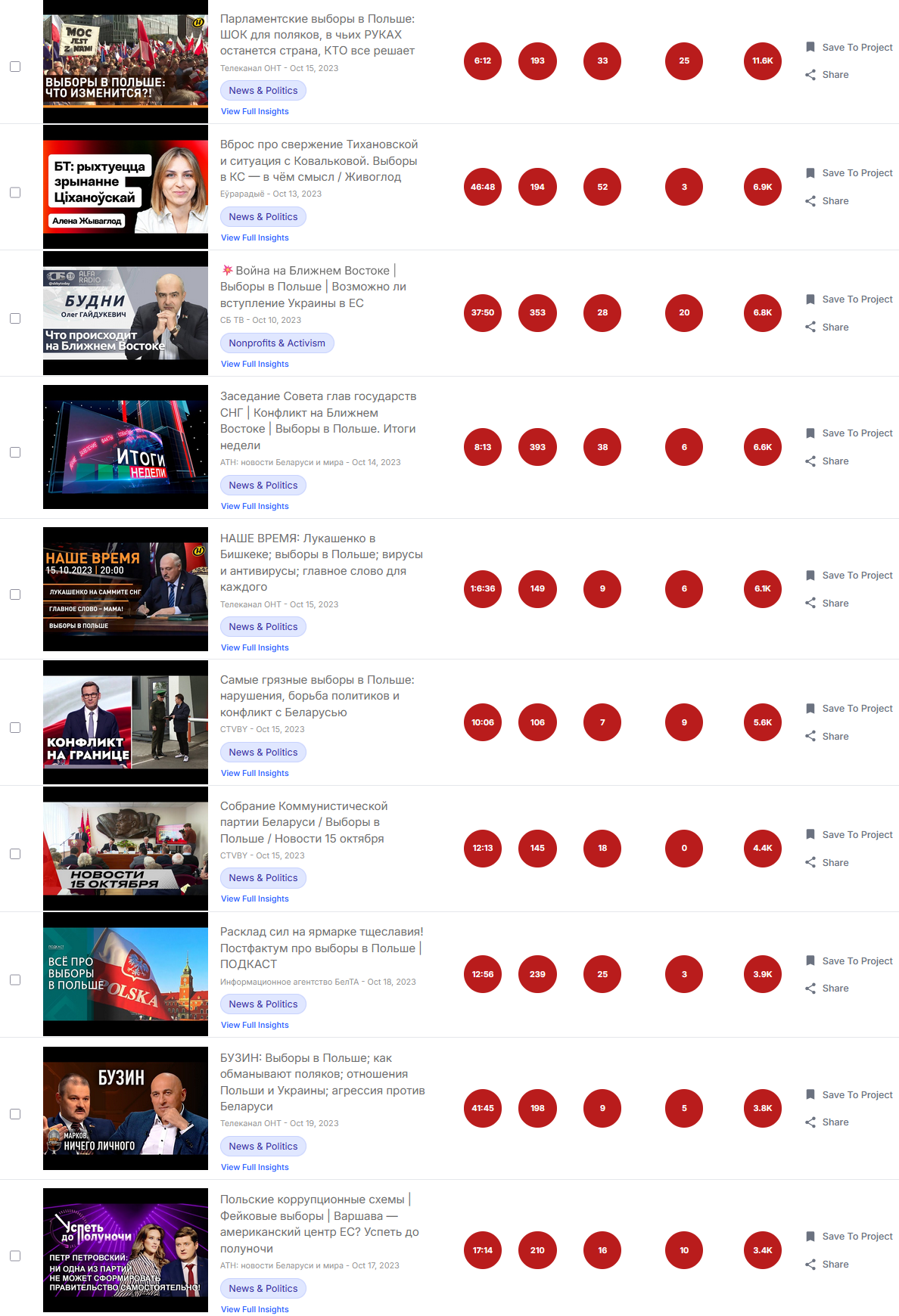
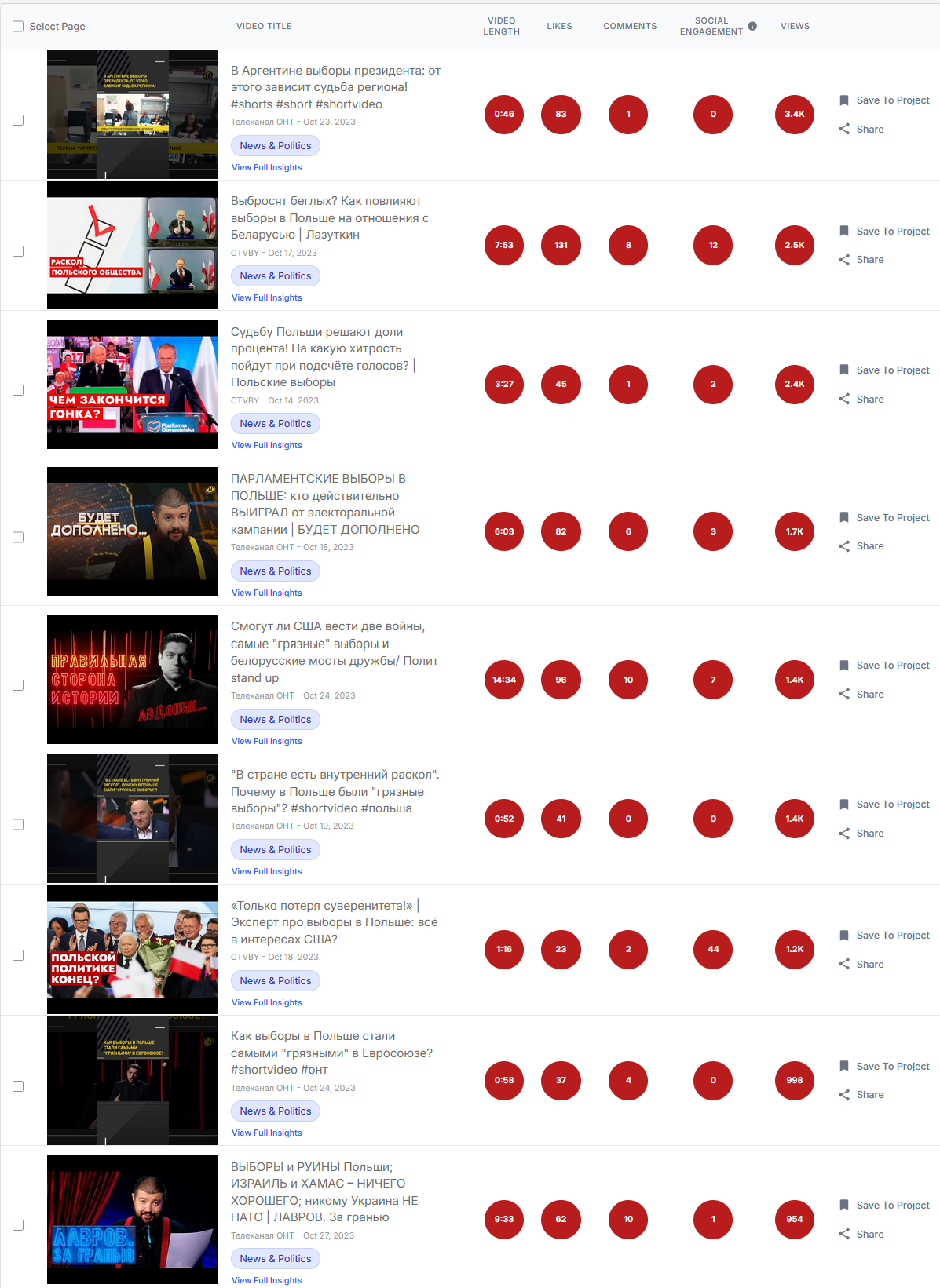
Out of these, 24 publications were about elections in Poland. Two publications about elections in Argentina. Of course, pro-government channels continued the disinformation campaign about the Polish elections after their results. The used vocabulary looks amusing: “the dirtiest elections”, “fake elections”. Belarusian propagandists, who continue to work with the illegitimate Belarusian government, have already called the presidential elections in Latvia “fake elections”.
Among all the publications, there is an interview with Elena Zhivoglod about the elections to the Coordination Council, which is often called the proto-parliament: “Throw-in about the overthrow of Tihanovskaya and the situation with Kovalkova. Elections to the CC – what’s the point / Zhivoglod”.
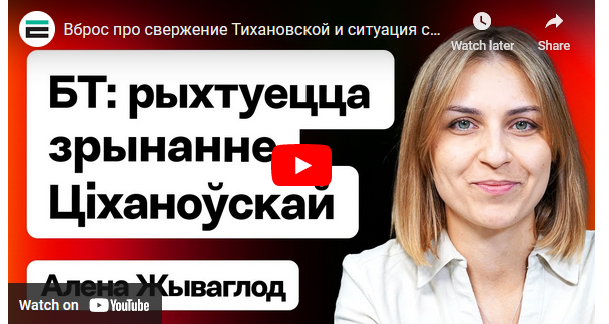
The general conclusion is that deliberately state media outlets publish false information about election campaigns in neighboring democratic countries. The Belarusian election campaign of 2024 has not yet started with a large number of publications by either state media or independent ones.
For the analysis, the social media monitoring platform Buzzsumo was used.
The publication was prepared by the Baltic Internet Policy Initiative






